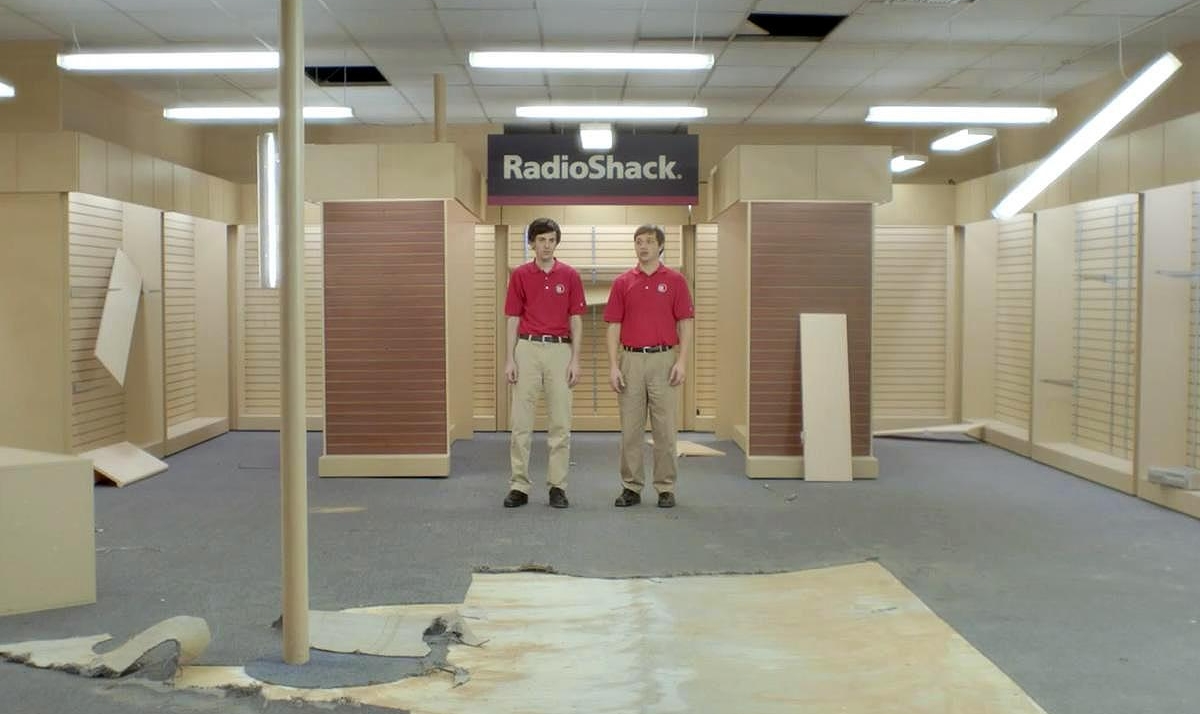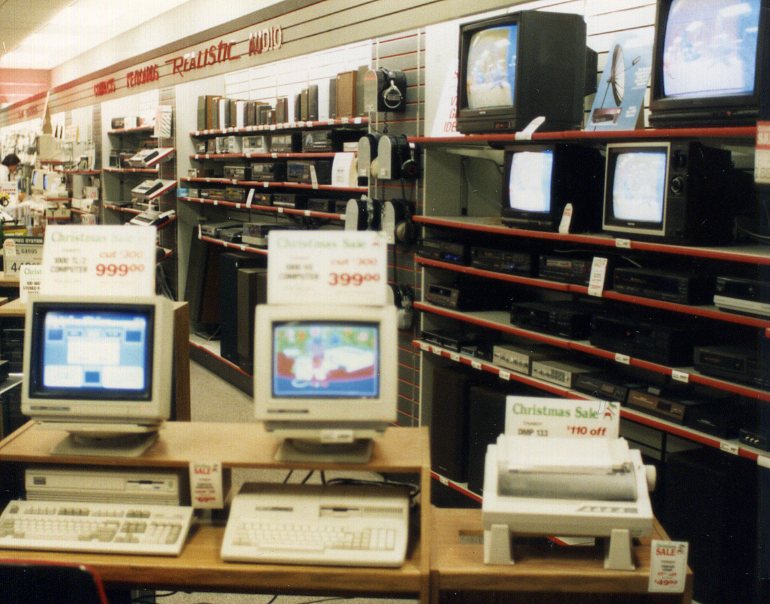Goodbye Radio Shack

After 94 years, Radio Shack, a store that elicits very fond memories for me, has declared bankruptcy and is negotiating to close half its stores and sell the other half. They’re even being delisted from the New York Stock Exchange.
This is sad news. To me anyway. I’m willing to guess that for many people the nostalgia will seem misplaced, but for me it was an integral part of my tech education.
Radio Shack hasn’t been the store I remember for years and years, over a decade to be more specific. In those days, you could buy breadboards, capacitors, diodes, all sorts of adapters, cables, every kind of electronic component you could imagine. If you needed oscilloscopes, soldering irons, magnetizers, anything of the sort, they had it.
If you needed some oddball adapter so you could use headphones that had a 1/16″ headphone jack with a device that had an 1/8″ jack, they could set you up. If you needed to connect three game consoles to one TV and switch between them, they had the switchboxes for that. I have a jar out in the garage filled with adapters that I’ve used over the years for countless projects, mainly when wires ran endlessly throughout the house, all but one bought at Radio Shack. I dumped them out a took a picture of a subset of them. This is by no means all of them, but it gives a good idea.
When I first started college, the girl I was dating at the time worked at Radio Shack, and she had gotten the job through a mutual friend of ours, who was the manager. It was a pretty fun place; I’d hang around poking out programs or playing games on the branded PCs they had, but I also felt uncomfortable about how, at closing time, that manager that hired her would get a plastic shopping bag and fill it with stuff off the shelves, taking it home. In other words, stealing it. He was at that Radio Shack for a long time, and I never understood why there seemed to be no consequence for this; was there no corporate oversight or inventory management? Or did he actually fudge the numbers? Either way, how he was able to do this to such an extent without any repercussions that I was ever aware of perplexes me to this day.
Started in the early 1900s as a store that sold radio equipment to hobbyist HAM radio operators, and expanded into the go-to hobbyist electronic shop. The problem is, for reasons I can’t begin to fathom, they all but abandoned that business model and tried to become a consumer electronics store, selling phones, TVs, RC cars for some reason, but with higher and higher prices. The hobbyist base left them, but the consumer base never went there in the first place. It was a bizarre strategy, one which led the chain that once claimed 90% of all U.S. residents lived within a 1/4-mile of one of its stores to end up in this situation.
However, I also think this is a reflection on the advancement of technology in general. You see, these days you don’t have to jury-rig your PC to get it to work, or buy RJ-11 extenders (you know what RJ-11 is even if you don’t know it yet and don’t use it), or figure out a sea of AV standards, you just buy a smartphone and everything simply works. Unless you’re a hardcore hobbyist, there just isn’t a need for what Radio Shack used to offer, there’s not high demand, and consumers don’t know what it is The place actually sold.
Even so, I’ll miss what it was, as will many of us. They used to have a well known tagline: You’ve got questions, we’ve got answers.” My question is, what were you thinking? Luckily, at least for those of us who live here, we can go to Fry’s if we need specialty electronic components.
Additional, sad reading that cements some of my earlier comments and what I always suspected: http://www.sbnation.com/2014/11/26/7281129/radioshack-eulogy-stories


